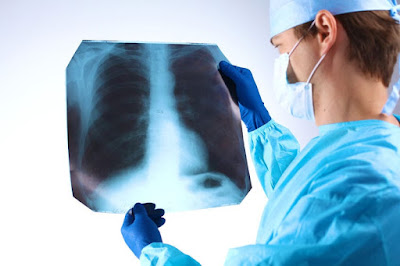Pulmonologists: How do they treat the diseases?
What do Pulmonologists do?
For some relatively short-lasting illnesses that affect your lungs, like the flu or pneumonia, you might be able to get all the care you need from your regular doctor. But if your cough, shortness of breath, or other symptoms don't improve, you might need to see a pulmonologist in Nagpur.
Pulmonologists are specialists who diagnose and treat diseases of the respiratory system -- the lungs and other organs that help you breathe.
When should you see a Pulmonologist?
A simple cough associated with allergies or cold shouldn't send you looking for a pulmonary specialist. Urgent care or your primary care doctor should be your first stop, and then on to an allergist or ear, nose and throat (ENT) specialist.
You should see a pulmonologist if that cough persists for more than 3 weeks, or if it becomes severe. This should be done in consultation with your primary care doctor.
When else should you see a pulmonologist? The below symptoms can be related to a lung condition and a pulmonary specialist may be helpful:
Chest pain or tightness
Dizziness, lightheadedness or fainting
Difficulty in breathing while running exercise
Fatigue
Wheezing
Recurring or chronic bronchitis or colds that impact your respiratory system
Asthma that isn't well-controlled, or has unidentified triggers
Pulmonologists are specialists who diagnose and treat diseases of the respiratory system -- the lungs and other organs that help you breathe.
When should you see a Pulmonologist?
A simple cough associated with allergies or cold shouldn't send you looking for a pulmonary specialist. Urgent care or your primary care doctor should be your first stop, and then on to an allergist or ear, nose and throat (ENT) specialist.
You should see a pulmonologist if that cough persists for more than 3 weeks, or if it becomes severe. This should be done in consultation with your primary care doctor.
When else should you see a pulmonologist? The below symptoms can be related to a lung condition and a pulmonary specialist may be helpful:
Chest pain or tightness
Dizziness, lightheadedness or fainting
Difficulty in breathing while running exercise
Fatigue
Wheezing
Recurring or chronic bronchitis or colds that impact your respiratory system
Asthma that isn't well-controlled, or has unidentified triggers
What kind of training do they have?
A pulmonologist's training starts with a medical school degree. Then they do an internal medicine residency at a hospital for 3 years to gain more experience. After their residency, doctors can get certified in internal medicine.
That's followed by several years of specialized training as a fellow in pulmonary medicine. Finally, they must pass speciality exams to become board-certified in pulmonology. Some doctors get even more specialized training in a disease like asthma or COPD.
What kind of procedures do Pulmonologists do?
That's followed by several years of specialized training as a fellow in pulmonary medicine. Finally, they must pass speciality exams to become board-certified in pulmonology. Some doctors get even more specialized training in a disease like asthma or COPD.
What kind of procedures do Pulmonologists do?
Pulmonologists sometimes do procedures to:
Clear fluid and mucus from your lungs
Open blocked air passages or ease difficulty breathing
Take tissue samples to diagnose disease
Look inside your lungs and airways to diagnose disease
Open blocked air passages or ease difficulty breathing
Take tissue samples to diagnose disease
Look inside your lungs and airways to diagnose disease
How Do Pulmonologists Diagnose Lung Diseases?
Pulmonologists use tests to figure out what kind of lung problem you have. They might ask you to get:
Blood tests: They check levels of oxygen and other substances in your blood.
Bronchoscopy: It uses a thin, flexible tube with a camera on the end to see inside the lungs and airways.
CT Scan: It's a powerful X-ray that makes detailed pictures from inside your chest.
Spirometry: This tests how well your lungs work by measuring how hard you can breathe air in and out.
X-rays: They use low doses of radiation to make images of your lungs and other structures in your chest.
How can a Pulmonologist help you?
A pulmonologist works with patients facing serious or chronic breathing problems. While primary care doctors can handle mild or short-term conditions, such as those caused by a cold or respiratory infection, you'll need to see a pulmonologist to diagnose, treat and manage more complex illnesses that primarily affect the lungs.
If you're struggling with respiratory disease, accurate diagnosis is the first step. A pulmonologist uses procedures such as spirometry, bloodwork, chest X-rays, CT scans, bronchoscopies and sleep studies to diagnose chronic lung disease. Your pulmonologist may ask you to repeat these tests even if you have already completed them to confirm the results.
Once you have a diagnosis, the best hospital in Nagpur will create a treatment plan. If you require surgery, that will likely be done by a surgeon who specializes in the heart and lungs. Beyond that, a pulmonologist will use medications, therapies and pulmonary rehabilitation to help you return to wellness.
Because lung diseases are often debilitating and require long-term care, pulmonologists are well-versed in working with you and your family and healthcare team. They should be able to adapt treatment plans to work with your situation and should be able to coordinate your care with other important members of the team. Examples include respiratory therapists, asthma educators, pulmonary rehab programs and local support groups. This can help you and your loved ones understand your condition and your path forward.



For cardio physiotherapy in Bhopal city, you can click here Cardio Physiotherapy in Bhopal
ReplyDeleteThanks for sharing the information. Really very informative and creative contents. Credence Medicure Corporation enables the Online doctor consultation who can assist you via mobile app, chat and video to resolve your healthcare problems and access your health records-anytime/anywhere.
ReplyDeleteOnline Medical Consultation India
Healthcare Organization
Health Tourism
Global Online Healthcare
Online Doctor Consultation
Health Tourism
Foreign Hospitals
Pulmonology Treatment in India
i have read this blog, this information is very valuable
ReplyDeletemore information this topic: What is a Pulmonologist
Thank you because you have been willing to share information with us. we will always appreciate all you have done here because I know you are very concerned with our.
ReplyDeleteRegards,
Chest and Lung Specialist